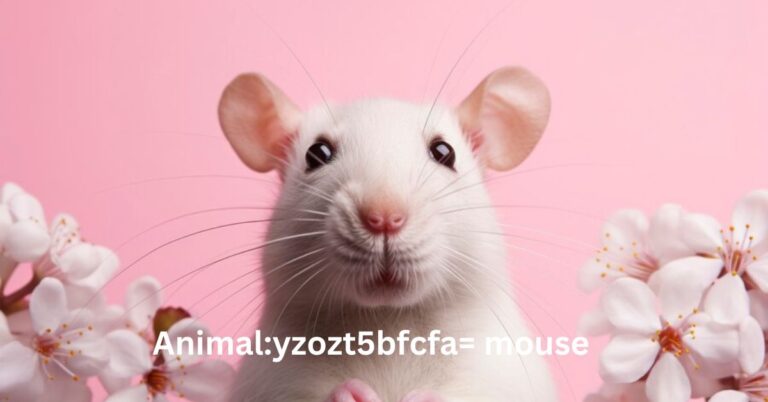Learn to sit back and observe. not everything need – tymoff – The Power of Mindful Observation in Everyday Life!
Learn to sit back and observe. Only some things need immediate action. This philosophy, rooted in mindfulness, promotes patience and emotional intelligence, leading to wiser, more thoughtful decisions.
This article will explore the profound impact of learning to “sit back and observe” on our daily lives, emotions, relationships, and overall personal growth.
Learn to Sit Back and Observe. Not Everything Need – Tymoff – Understanding the Phrase!
The phrase “Learn to sit back and observe. Not everything needs – Tymoff” suggests that not every moment or situation requires an immediate response. In many scenarios, slowing down can provide clarity, reduce the risk of impulsive actions, and allow us to make decisions from a place of thoughtfulness rather than reaction. This approach is beneficial in our personal lives, professional settings, and day-to-day interactions, allowing us to build resilience and understanding.
The Importance of Mindfulness and Observation – Must Explore!
Mindfulness and observation are two essential elements within this philosophy. Being present and aware, mindfulness allows us to approach life calmly and with greater clarity. Observation, meanwhile, teaches us to absorb the full scope of our surroundings and situations without jumping to conclusions or decisions.
- Enhancing Emotional Regulation:
- Observing without reacting allows us to better regulate our emotions. This is especially helpful in high-stress situations where reacting impulsively could harm relationships or lead to poor decisions.
- Emotional regulation, made easier through patience and observation, allows us to choose how we respond rather than allowing emotions to take control.
- Fostering Greater Awareness:
- Observing situations before acting allows us to gain a more comprehensive understanding. We notice details and subtleties we might otherwise miss, which can lead to more effective decision-making.
- This awareness contributes to self-understanding as we become more attuned to our reactions, triggers, and habits.
Benefits of “Sitting Back and Observing” in Daily Life!
- Reduced Stress and Anxiety:
- By not feeling pressured to respond immediately, we reduce the likelihood of stress and anxiety. We give ourselves time to process, think, and evaluate before committing to an action.
- This results in a calmer mindset, as we no longer feel compelled to react to every situation instantly.
- Improved Decision-Making Skills:
- Decisions made in haste can lead to regrets. Sitting back and observing allows us to think through options and consequences, resulting in more thoughtful, beneficial choices.
- This skill is precious in business or work environments, where decisions can have far-reaching effects.
- Stronger Relationships:
- Taking a step back and observing our emotions and reactions in relationships can improve communication and understanding with others.
- Instead of reacting negatively to disagreements, sitting back allows us to listen more effectively, promoting mutual respect and empathy.
The Science Behind Mindful Observation and Emotional Regulation!
Studies in psychology have shown that mindfully observing situations can increase emotional intelligence and self-regulation. Research has also shown that mindfulness techniques can increase grey matter in areas of the brain associated with learning, memory, and emotional control. When we apply the concept of “learn to sit back and observe,” we essentially enhance our brain’s capacity for thoughtful reaction and patience.
Practical Tips to Incorporate “Sitting Back and Observing” into Your Life!
Practice Mindful Breathing:
- When you feel the urge to react, pause and take a few deep breaths. This simple practice can help you shift from reactive mode to observation mode.
Set Intentions for the Day
- Start each day to observe before acting. By setting this intention, you remind yourself to prioritise mindfulness throughout the day.
Engage in Reflective Journaling:
- Journaling allows you to process your thoughts and emotions before acting on them. By writing down your feelings, you gain insight into your reactions and can approach situations with a clearer perspective.
Limit Exposure to Triggers:
- Be mindful of situations or people who may cause you to react impulsively. Identifying triggers can help you prepare to approach them with patience.
How do you “Observe without reacting” in challenging situations?
In complex or high-stakes situations, taking a step back and observing can be especially powerful. Here are a few steps to maintain composure and observe effectively:
- Pause Before Responding: Pausing for a few moments can prevent knee-jerk reactions and help you process emotions before responding.
- Ask Questions Instead of Making Statements: When faced with conflict, asking questions can help you understand the other person’s point of view and defuse tension. This allows you to observe the situation from a different perspective.
- Reframe Negative Thoughts: Observe your internal dialogue and reframe negative or impulsive thoughts into neutral or positive ones. This can help keep emotions in check and prevent unnecessary conflict.
Embracing the Practice of Letting Go – Why It Is Necessary!
Sometimes, observation makes us realise that certain things don’t require our response. This approach promotes letting go of situations that do not serve us or are beyond our control.
Focus on What You Can Control:
- Observing without reacting allows you to focus your energy on things within your control, fostering peace of mind and reducing frustration.
Accept Impermanence:
- Observing situations rather than controlling them teaches us about impermanence. Recognizing that some situations will resolve themselves can relieve stress.
Integrating Patience and Observation into Relationships!
When we apply this philosophy in relationships, we foster better communication, understanding, and respect. Some ways to practice “sitting back and observing” in relationships include:
- Listening Actively: Allow others to express themselves fully before responding. Listening is a form of observation that strengthens relationships.
- Avoiding Snap Judgments: Observing before reacting prevents misinterpretations or unfair assumptions about others.
- Being Present: Patience allows us to be fully present in interactions, which enhances connection and understanding.
FAQs:
Why is it important to sit back and observe in life?
Observing before reacting helps us make thoughtful decisions, fosters emotional intelligence, and reduces impulsive reactions. It contributes to a calmer, more balanced life.
How can I practice mindfulness in daily life?
To incorporate mindfulness into your routine, try techniques like mindful breathing, setting daily intentions, journaling, and identifying your triggers.
How does observing affect relationships?
Observation improves communication, promotes empathy, and helps prevent conflicts, making it a powerful tool for building more robust, understanding relationships.
Conclusion:
The concept of “Learn to sit back and observe. Not everything needs—Tymoff” is about embracing patience, fostering mindfulness, and building emotional resilience. Observing before acting empowers us to make thoughtful decisions and strengthen our relationships.
Adopting this philosophy in a world that often pushes us to act and react immediately can lead to a more peaceful, intentional, and fulfilled life.





